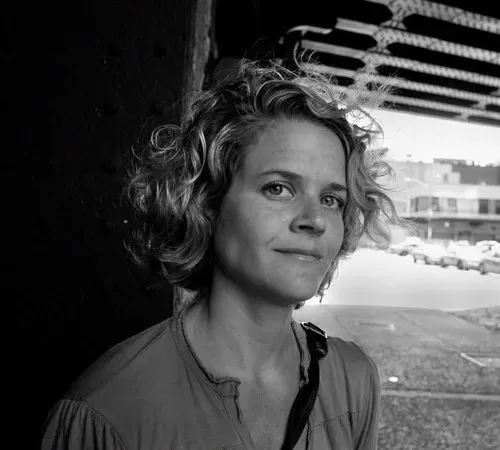
Eliza Griswold
Farrar, Straus and Giroux, 2020
96 pages; $23.16
Responding to the World
By Meredith Barton

Author Eliza Griswold begins If Men, Then with a prayer encouraging deeper kindness and understanding. What can we offer the people who are running from everything they know, chasing the idea of something better? Some chase the American Dream while others chase safety. In four parts, Griswold reflects on her experiences while visiting other countries, her immersion in those countries, her growth as an individual, and her process of navigating the world inside of her and around her. These navigations cause her to view both herself and the world differently. Confronting her past, Griswold shows herself and others more compassion.
COVID-19 has brought hard times for many, and this has been a glimpse of what people around the world have dealt with their entire lives. If Men, Then will inspire its readers to consider the experiences of others with delicacy and respect. As individuals, we experience things that shape perspective on the smallest of scales, all the while things are happening all over the world that shape us, too.
The world in which this poetry is set mentions the actions of men numerous times. Griswold’s discussion of men can be seen with an observation of men destroying the space around them in “Prelude to a Massacre ” and her attempts to rationalize why this destruction may happen in “Gaia”: “The Gaia hypothesis holds that the earth / is a body possessing the means to rid itself / of aggressors and malignancies.”
On reflection of her personal growth and exploration, Griswold often writes of her mental struggles. Examples of this show face in her poems “Testing,” “A Rock Rolled Out of Bed,” “Of Empty Heaven and Its Hymns,” and “Water Table.” In her poem “Water Table” she writes, “This wasn’t a plea to be found / or mourned for, but to be unborn / into the atmosphere.” Griswold’s voice presents itself in this passage through the navigation of her depression. She is not searching for a savior; rather, Griswold is searching for the feeling of being set free from her struggle.
The following excerpt from her poem “Prayer” tells a story of the journey many take to a new life and how dangerous it can be. Taking great sacrifice, people risk their lives so their families can have better futures. Unfortunately, they do not always make it over safely. This dream has been exploited into something that is just outside the realm of reality. Griswold tackles this exploitation by “Prayer” acting as a mirror to what that reality is. “Nothing is what we can offer. / The child died years ago. / Except practice a finer caliber of kindness.”
These poems have encouraged me to embrace other cultures, ideas, and people with open arms and an open heart. Something fresh and new continues to present itself with each read.
Griswold’s poems speak of bravery, respect, diversity, celebration, and wisdom. While each poem has a life of its own, all the poems combine to contribute to the central theme: empathy. Emphasizing survival, Griswold’s journey around the world and exploring her place within it work together simultaneously.

Originally from Brevard, North Carolina, Meredith Barton graduated from Tusculum University Magna Cum Laude with a Bachelor of Arts in English with a concentration in Communication and Public Relations. She was also a member of Tusculum’s women’s golf team.
At The Tusculum Review, she served as Assistant Poetry Editor and Assistant Editor. She is currently attending Western Carolina University to receive a master’s in human resources as she aspires to work in human resources management. She was the recipient of the English Senior Key Award and the Student Excellence in Scholarship Award. Her play, Loyalty, was produced in Tusculum’s 5x10s . She values human connection and believes, through empathy, we are better together.
